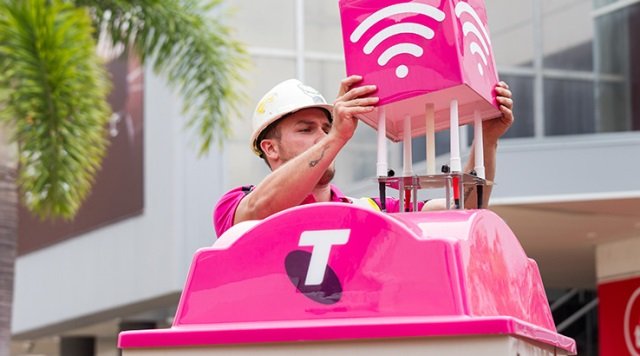The European Commission is set to approve and set rules for the use of WiFi in cars, shifting 5G to the backseat for some time.
 The EU is expected to announce legislation on the issue next month for feedback from EU countries and EU lawmakers before adopting it next year.
The EU is expected to announce legislation on the issue next month for feedback from EU countries and EU lawmakers before adopting it next year.
The EU decision is important for leading car makers such as Volkswagen and Renault and telecoms operators and equipment makers as the market for internet connected cars is expected to be worth billions of euros a year, Reuters reported.
The proposed support from EU for WiFi in cars will be giving Volkswagen and Renault, who have pursued this technology, the edge over rival car maker Daimler and others who invested in rival 5G networks.
While connected cars have been available for some years in Europe, the Commission wants to speed up their deployment and encourage cooperation between manufacturers to make safer and more efficient cars via legislation.
The image shows that Telstra, a leading telecom operator in Australia, is spending on 5G driven WiFi hot-spots. Verizon, a leading mobile service provider in the US, is launching 5G broadband replacing its home WiFi connections.
The latest draft of the proposed rules paves the way for cars equipped with WiFi called ITS-G5 to hit the roads in Europe. Regulators will review the rules at the latest three years after its implementation to take into account any new technologies including 5G.
This could mean that the alternative 5G standard called C-V2X could take months or even years to win approval.
Earlier, telecom industry association GSMA indicated that Asia will drive the 5G network market in terms of subscriptions. GSMA also said operators should not focus on connectivity services to retail customers to generate revenue from 5G networks. The main focus should be on business clients.
Wi-Fi vs 5G
The WiFi vs 5G issue has already created two groups of carmakers, chipmakers and telecoms providers.
Volkswagen, Renault, NXP, Autotalks and Kapsch TrafficCom are pushing ITS-G5, which they say has been sufficiently tested and fully standardised in European government-funded projects.
5G backers including like Daimler, Ford, PSA Group, Deutsche Telekom, Ericsson, Huawei, Intel, Qualcomm, Samsung — say that C-V2X has a range of applications in areas such as entertainment, traffic data and general navigation where data speeds or signal failure are less of an issue.
Fans of ITS-G5, which is primarily for connecting cars to other cars, say it is better for time-critical communications involved in crash avoidance and object navigation.
The draft currently the Commission is looking into the best European framework to promote the right investments in this area and ensure interoperability between the existing systems and the development of new technologies.
In effect, the decision puts the region at loggerheads with the United States and China which see C-V2X, using cellular networks, as the way forward.
EU countries such as Spain, Sweden, Finland and Norway had called for a postponement of the proposed rules because of the diverging views on the topic.
Lobbying group and C-V2X supporter 5GAA said: “A legislation confined to a WiFi based communication would send a negative message about Europe’s commitment to 5G.”





